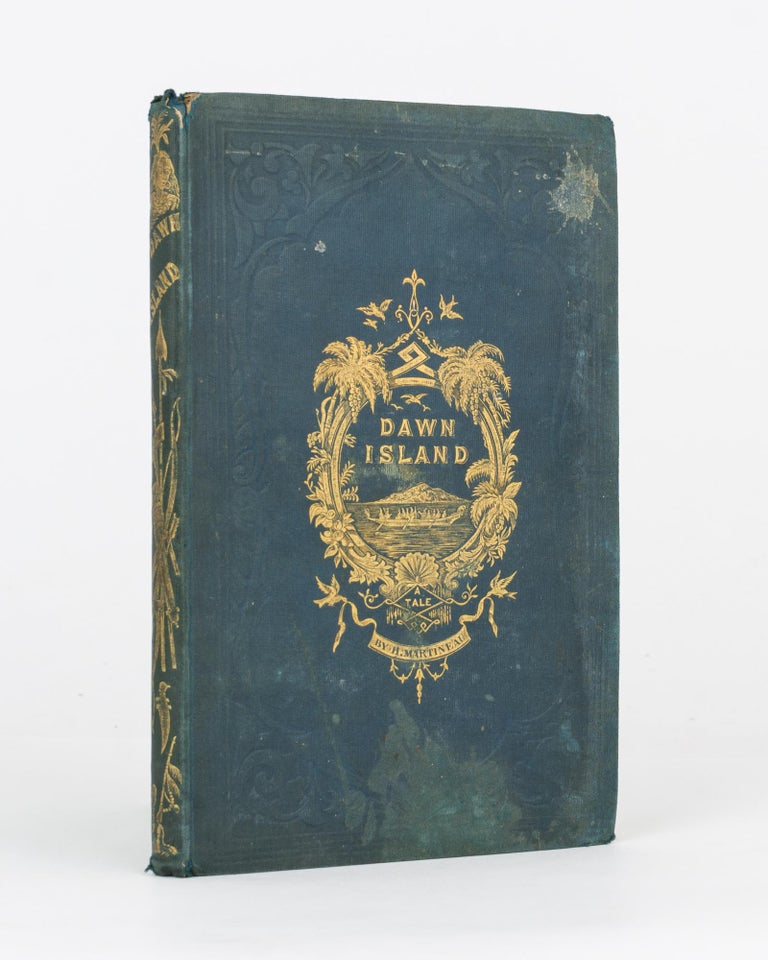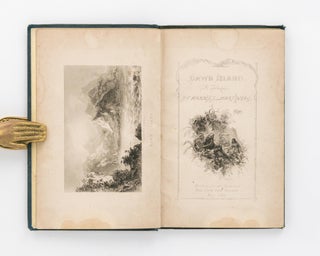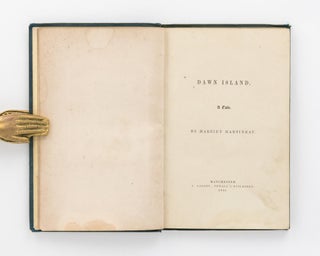Dawn Island. A Tale
Manchester, J. Gadsby, Newall's-Building [Printer and Publisher], 1845.
Duodecimo, 94 pages with a large decorated and illustrated initial letter at the beginning of the first chapter plus a frontispiece and an additional engraved title page with a vignette illustration (artwork credited to J. Stephenson).
Dark green cloth lettered and illustrated in gilt on the front cover and spine, and decorated in blind on both sides; all edges gilt; cloth lightly stained and a little marked, with light wear and a few bumps to the extremities; light marginal tidemarks to the frontispiece and engraved title; endpapers a little marked (and the rear free endpaper removed); trifling signs of age and use; overall, a very good copy.
Dawn Island is 'one of the small tropical islands of the Pacific' (page 7). 'This Tale, written for the purpose, is my offering to the Bazaar of the National Anti-Corn-Law League. However small its value, this contribution is made by me without hesitation, because I think that earnestness of conviction on the principal of Free Trade ... is most effectively evinced and employed by every one working in his own way for the cause' (preface). The synopsis to 'Harriet Martineau on the Fertility of Exchange' by Ayse Çelikkol (Oxford Scholarship Online) makes long work of it: 'Harriet Martineau describes global commerce through metaphors of harmony and fertility in "Dawn Island" (1845), a didactic tale that she identified as her offering to the Anti-Corn Law League. To describe free trade as natural and God-given, she conjured up older vocabularies of myth and religion. Primeval settings that embody unspoiled natural harmony and the abstraction of space characteristic of romances efface the threats posed by free trade. In imagined premodern worlds in which there are no nation-states, the absence of borders appears natural, and commercial exchange correlates to harmony between individuals. Martineau's reconciliation of global capitalism with nature resonates with contemporary defenses of free trade. The poet Ebenezer Elliott referred to religious values to oppose prohibitions on the importation of grain; circulars of the Anti-Corn Law League compared the circulation of commodities to the flow of air'. You have been warned.
Item #118498
Price (AUD):
$200.00



